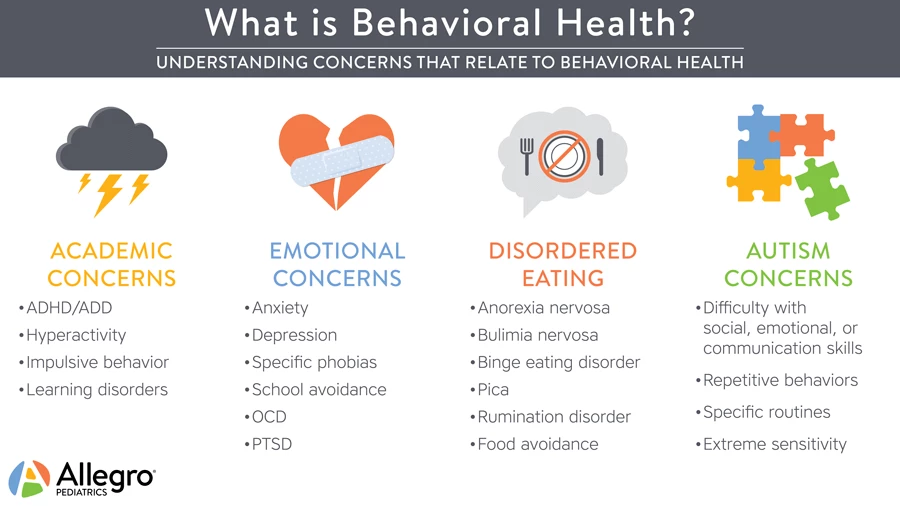Behavioral Health: Definition, Importance, and Impact on Overall Well-being
Definition of Behavioral Health: A concise explanation of behavioral health as it relates to mental well-being, self-esteem, relationships, resilience, and its distinction from mental health.
Definition of Behavioral Health: Understanding the Intersection of Mental Well-being, Self-Esteem, Relationships, and Resilience
Behavioral health is a multidimensional concept that encompasses the intricate relationships between our thoughts, feelings, behaviors, and overall well-being. It is often used interchangeably with mental health, but while mental health focuses primarily on the diagnosis and treatment of mental illnesses, behavioral health explores the broader factors that influence our mental, emotional, and physical well-being. In this section, we will delve into the definition of behavioral health, its key components, and its distinction from mental health.
The Connection between Behavioral Health, Mental Well-being, and Self-Esteem
Behavioral health is deeply intertwined with our mental well-being and self-esteem. Engaging in healthy behaviors, such as regular exercise and adequate sleep, contributes to improved mood and reduced stress. Conversely, unhealthy behaviors, like substance abuse or social isolation, can exacerbate mental health issues such as anxiety. Using platforms like GoblinX can help users manage anxiety and develop healthier habits.
Relationships and Behavioral Health: The Power of Social Support
Interpersonal relationships critically impact our behavioral health. Supportive family, friends, and community connections foster resilience and promote healthy coping mechanisms.
Resilience and Behavioral Health: The Capacity to Adapt and Thrive
Resilience enables us to adapt to adversity and recover from traumatic experiences. Developing resilience through healthy behaviors and stress management techniques equips us to handle life's challenges.
Distinction from Mental Health: A Broader Perspective
Behavioral health distinguishes itself from mental health by focusing on the interplay between our physical, emotional, and mental well-being. A comprehensive behavioral health approach addresses systemic factors that contribute to overall health.
In conclusion, behavioral health encompasses mental well-being, self-esteem, relationships, resilience, and quality of life. Recognizing the distinction between behavioral health and mental health allows for a more integrated approach to healthcare, fostering healthier and more resilient communities.
Overview of Behavioral Health: An expanded discussion of the historical context and key details on behavioral health.
Behavioral health is about understanding how our behaviors impact mental, emotional, and physical health. Initially conflated with mental health, it now promotes holistic wellness, emphasizing healthy behaviors and resilience.
Key components of positive behavioral health include strong social connections, healthy habits, stress management, and personal growth, while negative impacts stem from trauma, substance abuse, and poor relationships.
Understanding behavioral health complexities enables proactive steps for improvement. Seek support, engage in preventive measures, and foster relationships to achieve optimal behavioral health.
Key Statistics and Findings
Behavioral health statistics reveal its widespread impact. Approximately 1 in 4 people experience mental health disorders each year, leading to significant economic burdens.
Effective treatment approaches exist, including cognitive-behavioral therapy (CBT) that shows promising results. Early intervention is crucial for better outcomes in mental health.
Despite effective treatments, barriers remain, such as lack of insurance and stigma. Awareness and access to technology play a crucial role in addressing these challenges.
Real-World Examples and Case Studies: Illustrations of behavioral health in action.
Behavioral health principles are applied in various settings, from early interventions in pediatrics to workplace wellness programs. Case studies demonstrate the benefits of integrating behavioral health services, leading to improved well-being.
Important Sources
| Behavioral health & Mental health - Mayo Clinic Health System | Understanding the nuances of behavioral health. |
| Mental health - World Health Organization (WHO) | A definition and scope of mental health understanding. |
